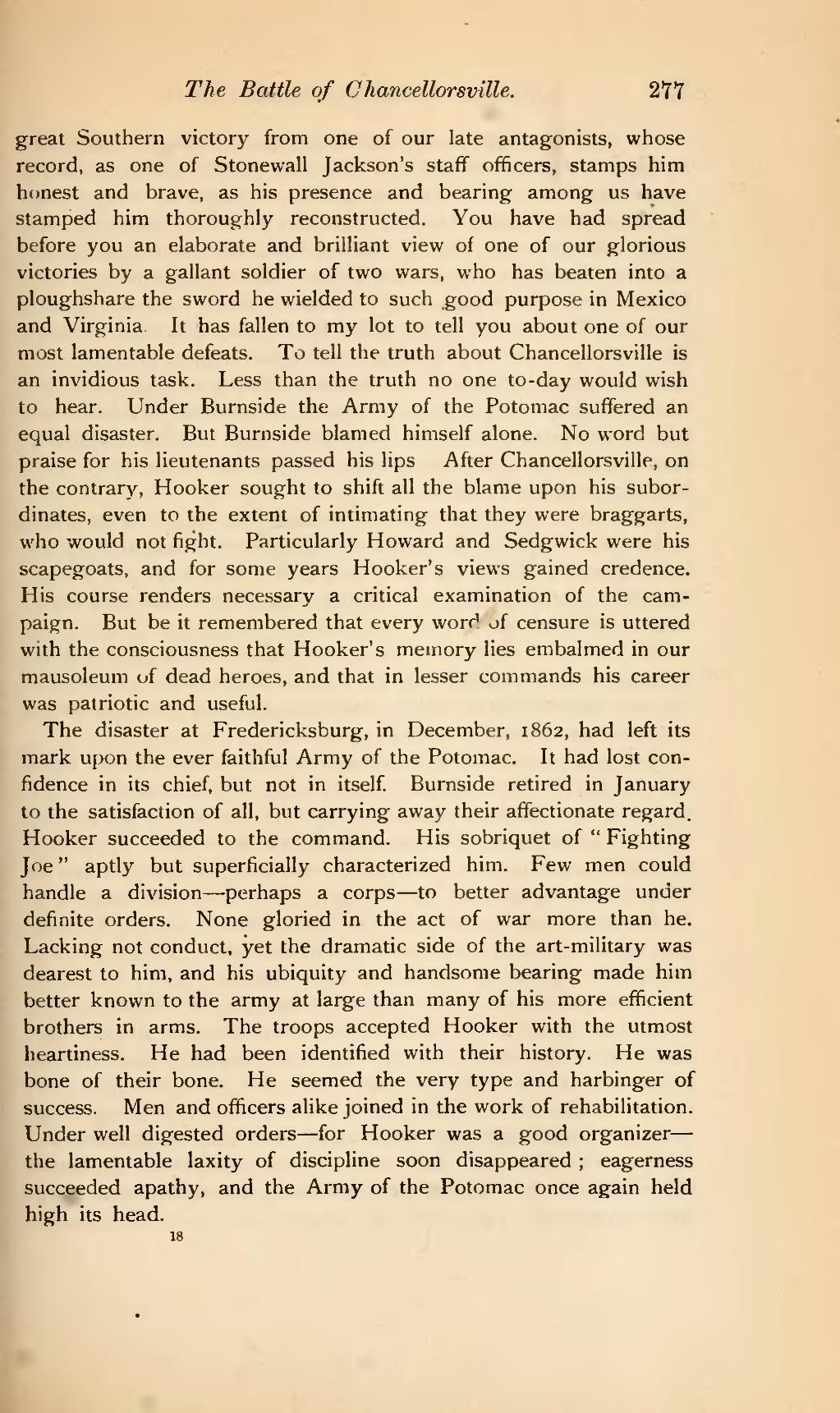The Battle of Chancellor sville. 2*77
great Southern victory from one of our late antagonists, whose record, as one of Stonewall Jackson's staff officers, stamps him honest and brave, as his presence and bearing among us have stamped him thoroughly reconstructed. You have had spread before you an elaborate and brilliant view of one of our glorious victories by a gallant soldier of two wars, who has beaten into a ploughshare the sword he wielded to such good purpose in Mexico and Virginia. It has fallen to my lot to tell you about one of our most lamentable defeats. To tell the truth about Chancellorsville is an invidious task. Less than the truth no one to-day would wish to hear. Under Burnside the Arm}'- of the Potomac suffered an equal disaster. But Burnside blamed himself alone. No word but praise for his lieutenants passed his lips After Chancellorsville, on the contrary, Hooker sought to shift all the blame upon his subor- dinates, even to the extent of intimating that they were braggarts, who would not fight. Particularly Howard and Sedgwick were his scapegoats, and for some years Hooker's views gained credence. His course renders necessary a critical examination of the cam- paign. But be it remembered that every word o{ censure is uttered with the consciousness that Hooker's memory lies embalmed in our mausoleum of dead heroes, and that in lesser commands his career was patriotic and useful.
The disaster at Fredericksburg, in December, 1862, had left its mark upon the ever faithful Army of the Potomac. It had lost con- fidence in its chief, but not in itself Burnside retired in January to the satisfaction of all, but carrying away their affectionate regard. Hooker succeeded to the command. His sobriquet of " Fighting Joe " aptly but superficially characterized him. Few men could handle a division — perhaps a corps — to better advantage under definite orders. None gloried in the act of war more than he. Lacking not conduct, yet the dramatic side of the art-military was dearest to him, and his ubiquity and handsome bearing made him better known to the army at large than many of his more efficient brothers in arms. The troops accepted Hooker with the utmost heartiness. He had been identified with their history. He was bone of their bone. He seemed the very type and harbinger of success. Men and officers alike joined in the work of rehabilitation. Under well digested orders — for Hooker was a good organizer — the lamentable laxity of discipline soon disappeared ; eagerness succeeded apathy, and the Army of the Potomac once again held high its head.
